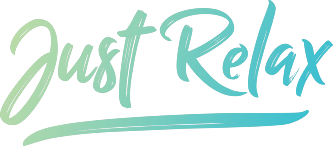
Can’t sleep – full moon is the reason? Does the moon really influence our sleep?
There are countless stories and myths about the full moon: the birth rate increases during a full moon, sleepwalkers are put into action, and a wedding only brings good luck if it is performed during a full moon. The most widespread belief about the moon, however, is that it affects our sleep patterns. While many people report that they suffer from problems falling asleep during a full moon and are unable to relax and sleep through the night, others describe the claim that they have trouble sleeping during a full moon as superstition and imagination. We explain what powers the moon actually exerts, whether it affects our sleep and what measures help us to fall asleep and stay asleep despite the full moon.
Sleep badly at full moon – that’s behind the myth
Brighter nights keep us awake
The claim that we sleep poorly during a full moon is based on several assumptions. One of them relates to the hormone melatonin, which regulates the human day-night rhythm. When it gets dark, the body produces more melatonin and we get tired. Brightness, on the other hand, has the opposite effect and makes us awake. On this basis, it is often claimed that the brighter nights of the full moon make it harder for us to sleep. However, the brightness of the full moon bears no relation to that of sunlight, especially since most people darken their bedrooms anyway. So this is an unlikely explanation for poor sleep during a full moon.
Effect of the moon on nature and body
The moon’s gravitational pull is the main driving force behind the formation of tides. When the moon is full, the tidal forces intensify to such an extent that spring tides can occur. So the powerful influence of the moon on large quantities of water and the ocean is proven – but what about the effect on the human body, which is seventy percent water? Although this explanation sounds plausible, researchers agree that it would take a much larger amount of water than is present in the human body to explain why some people sleep poorly during a full moon.
Sleeping badly at full moon: who believes it!
A slightly less mystical explanation for poor sleep at full moon relates to the belief in it. If we know that tonight is a full moon and we are rock solidly convinced of its negative effect on our sleep, then we are likely to sleep poorly that night. If we then slept poorly during the full moon, we will be even more convinced of its effect on our sleep during the next full moon – a vicious circle! This is a striking example of how our thoughts and beliefs often cause real body reactions.

Studies on the culprit moon in matters of sleep
Sleeping badly during a full moon – scientifically proven!
A 2013 study by Swiss biologist Christoph Cajochen provides evidence that many sleep poorly during a full moon. The researchers conducted a study to investigate human sleep/wake regulation, and to do so, examined the sleep of 33 subjects in a 3.5-day experiment. The study took place in a laboratory and the subjects were not aware of when the moon was full. During an after-work beer – years after the end of the study – the scientists had the idea to study the sleep of the subjects again, only this time taking into account the full moon. And sure enough – the subjects slept 20 minutes less on full moon nights, showed lower melatonin levels and complained of poorer sleep quality.
Or is it?
The facts are not quite so clear. The biologist Christoph Cajochen is the only researcher who has so far established such a connection. A year later, a similar study was conducted with a larger sample, which could not confirm a connection between the occurrence of the full moon and poor sleep. A study that examined the sleep of over 5,000 children also did not identify the moon as a culprit when it came to sleep. So even if most researchers currently assume that no one sleeps badly because of the full moon, it remains exciting to see what other results sleep research will publish.
Tips for moon sensitive people
Sleeping badly during a full moon: tips
If you firmly believe that you sleep worse under a full moon because your room is brighter than usual, use a sleep mask or darken your room with the help of blinds or shutters. On the other hand, if someone has told you that tonight is a full moon and you just can’t get that fantasy out of your head and lie awake, try listening to soothing music or doing a relaxation exercise to help you fall asleep. If constantly glancing at the alarm clock still drives you crazy, try a sleep phase alarm clock. To clear your head in the evening, breathing techniques or mindfulness exercises that don’t take up much space or time are especially recommended.
Search for other causes
Humans are becoming more and more detached from nature, its cycles and rhythms. In the case of problems falling asleep or sleeping through the night, other causes such as stress or not having a clear head in the evening usually prevent relaxed sleep. Also a lack of evening routine is often the reason why many people sleep badly on ordinary nights and also during full moon. Therefore, don’t blame the moon for your bad sleep – and don’t find out when the next full moon is – but instead try to improve your bed hygiene, for example by always getting up and going to bed at the same time.









